
Find Help
More Items From Ergsy search
-

Is there a cure for cold sores?
Relevance: 100%
-
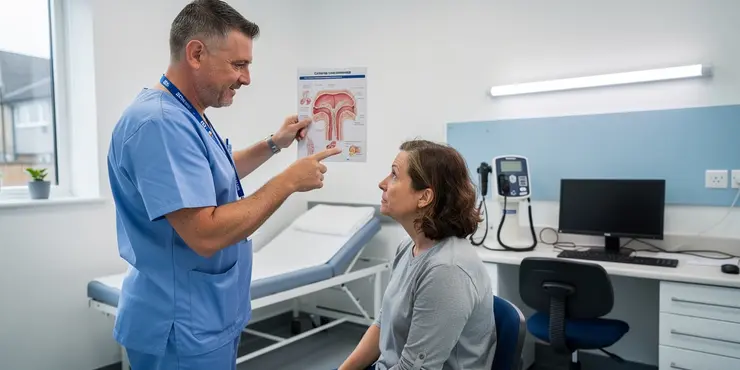
What are Cold Sores?
Relevance: 80%
-

Are cold sores contagious?
Relevance: 79%
-
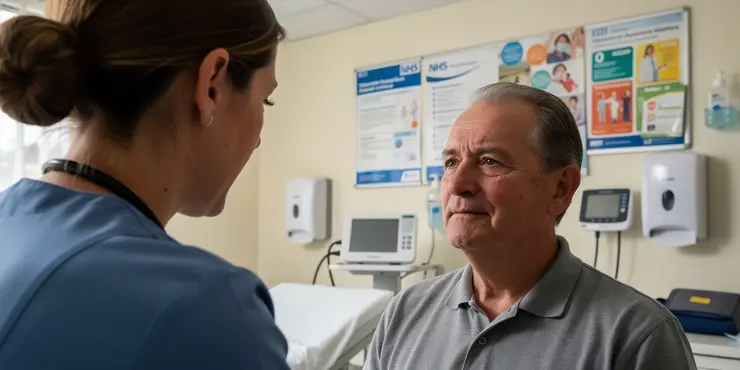
What causes cold sores?
Relevance: 73%
-
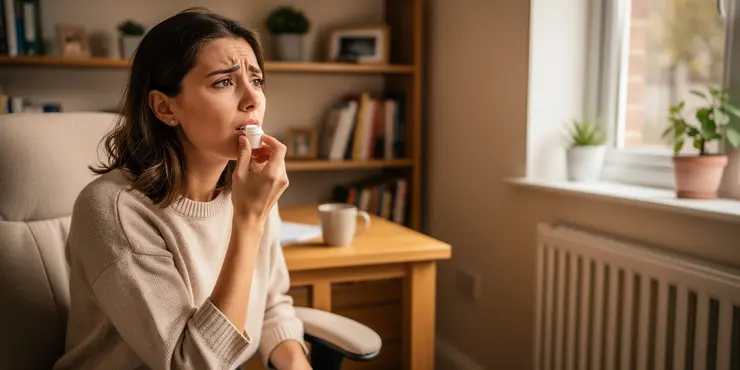
How long do cold sores last?
Relevance: 70%
-
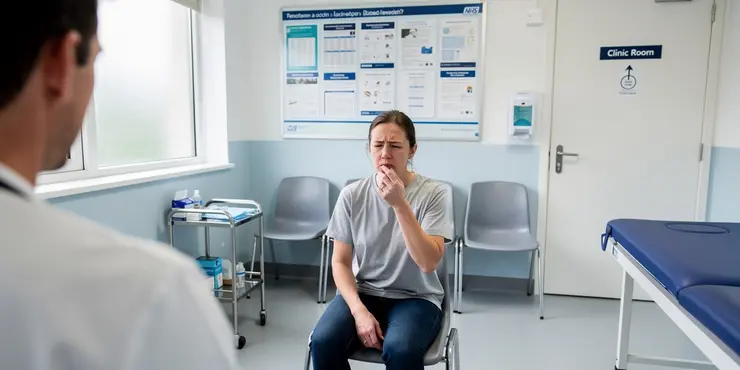
What are the symptoms of a cold sore?
Relevance: 69%
-
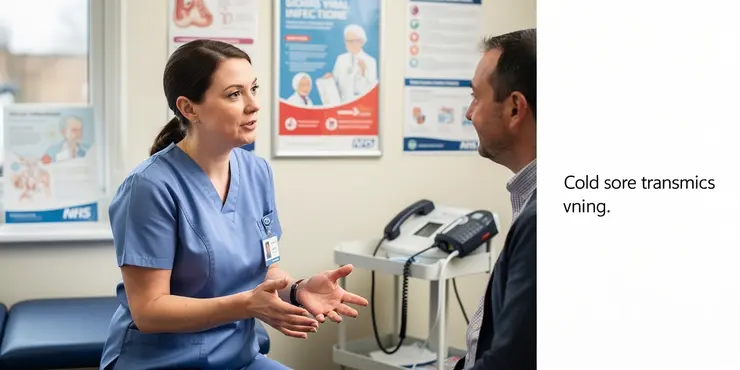
How are cold sores transmitted?
Relevance: 69%
-
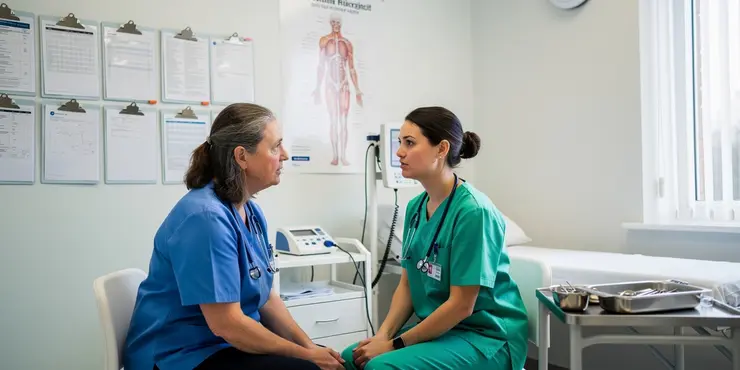
Is there a way to cure a cold quickly?
Relevance: 68%
-
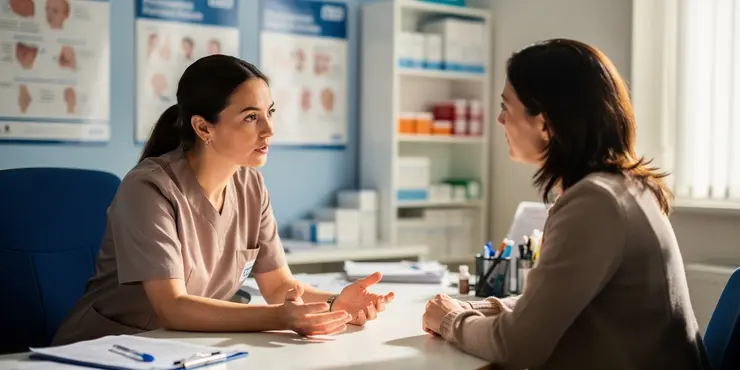
What triggers a cold sore outbreak?
Relevance: 66%
-

How can I prevent cold sores?
Relevance: 65%
-
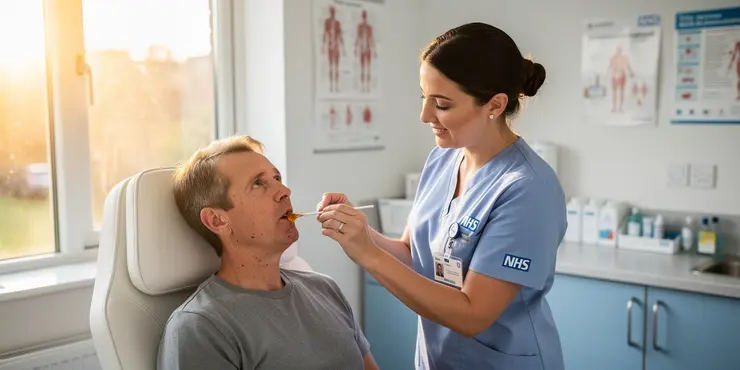
Honey 'as good as antiviral creams' for cold sores | NHS Behind the Headlines
Relevance: 57%
-
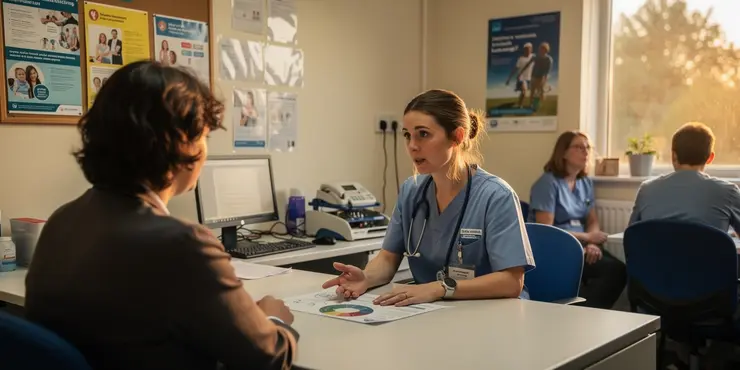
What is the best way to treat a sore throat from a cold?
Relevance: 56%
-
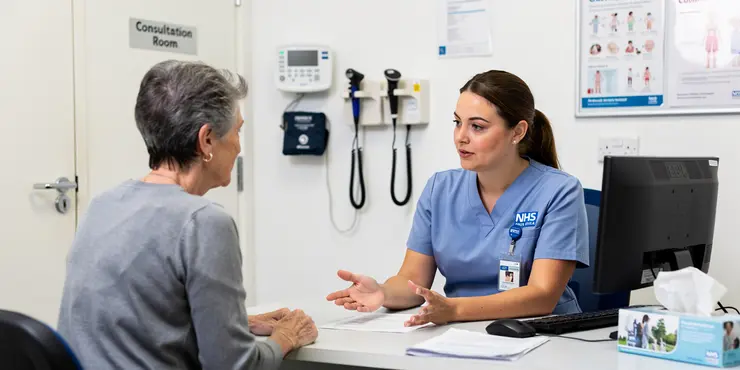
How to Treat a Common Cold
Relevance: 49%
-
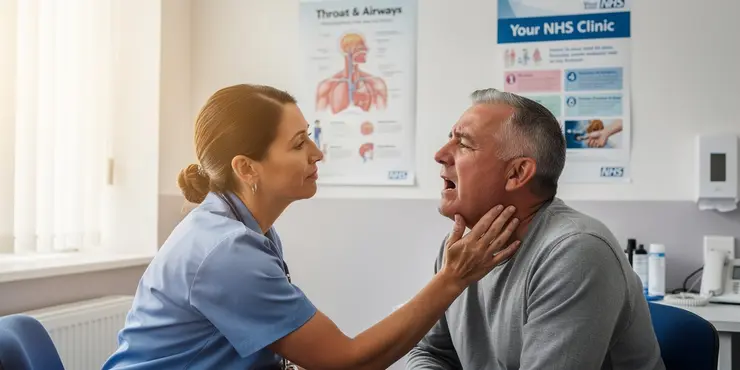
Causes of a sore throat
Relevance: 47%
-
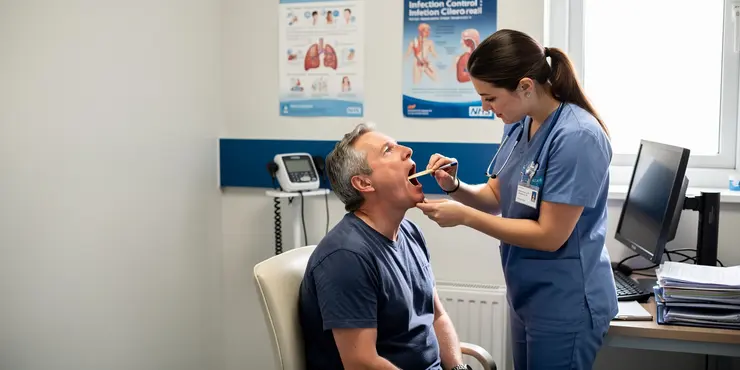
Treating a sore throat
Relevance: 47%
-
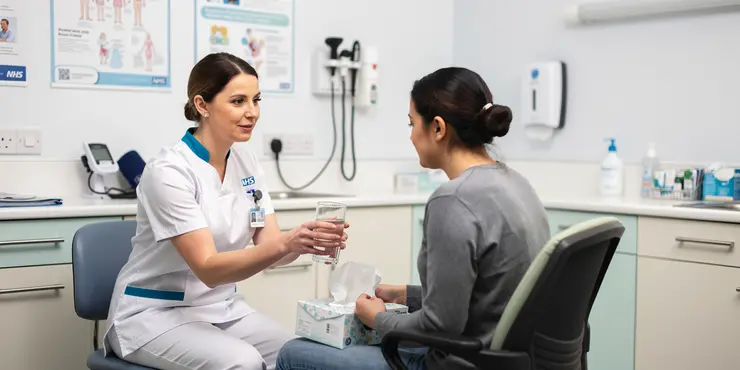
How to treat a cold | NHS
Relevance: 45%
-
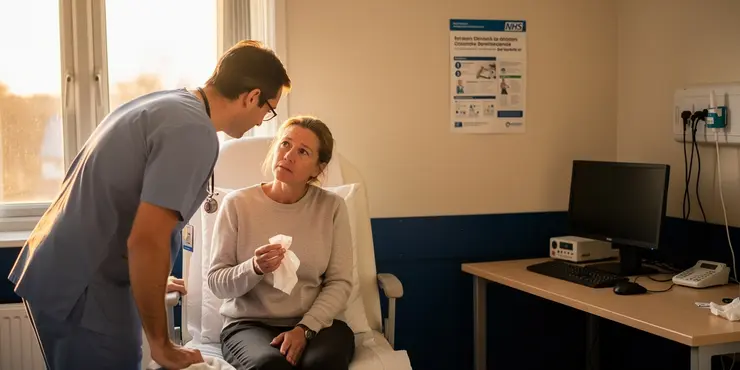
What are the common symptoms of a cold?
Relevance: 43%
-
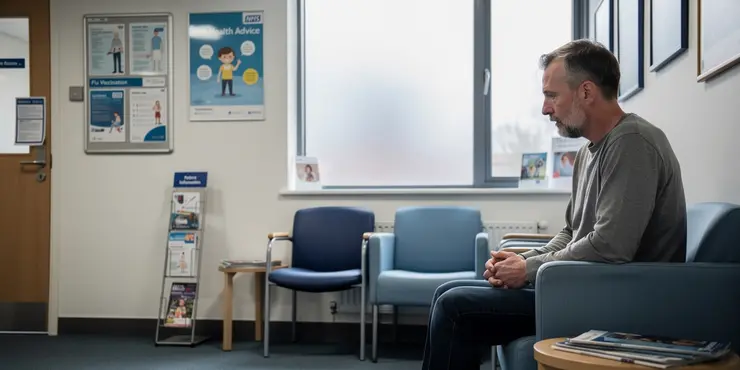
Should I see a doctor for a cold?
Relevance: 42%
-

How can I treat a cold at home?
Relevance: 42%
-

Sore throat: what should I do?
Relevance: 42%
-

How long does a common cold typically last?
Relevance: 40%
-
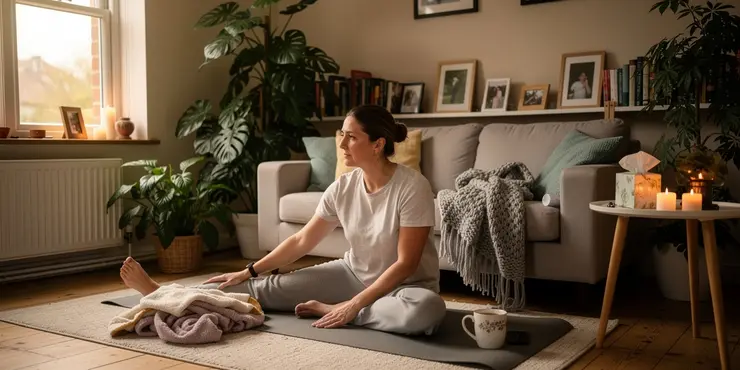
Is it safe to exercise with a cold?
Relevance: 39%
-
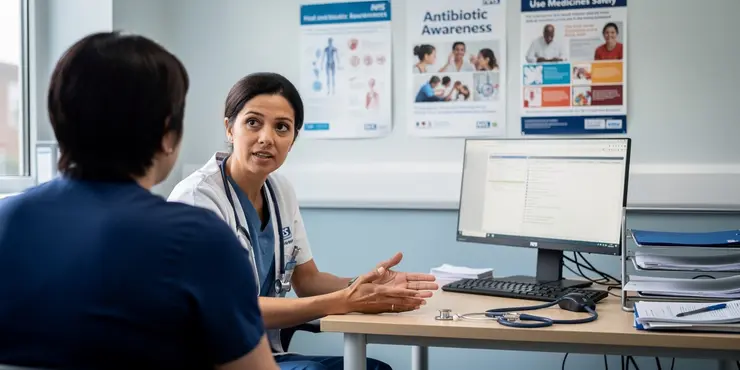
Can I take antibiotics for a cold?
Relevance: 38%
-

Can cold weather cause a cold?
Relevance: 37%
-
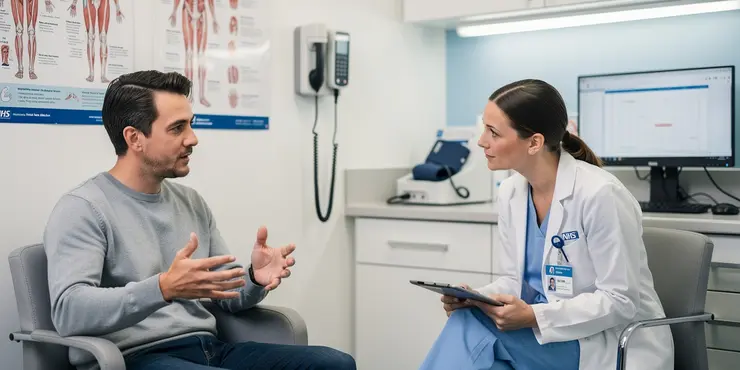
What should you do if you have a cough or cold?
Relevance: 36%
-
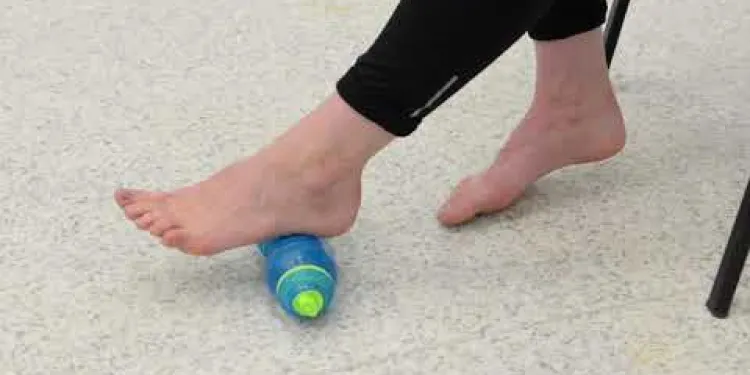
Plantar Fascia Cold Therapy
Relevance: 35%
-
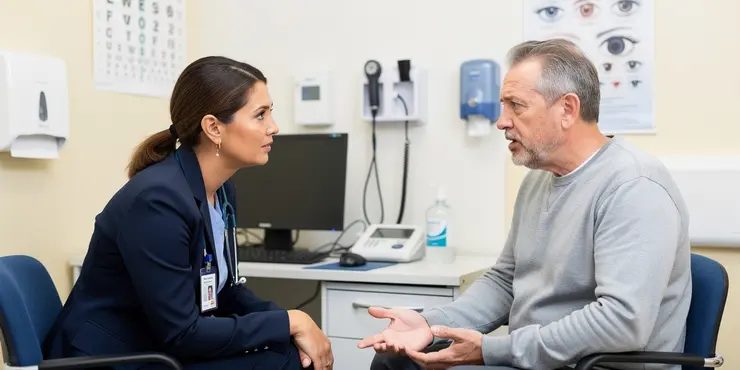
Can I use a humidifier to help with my cold symptoms?
Relevance: 35%
-
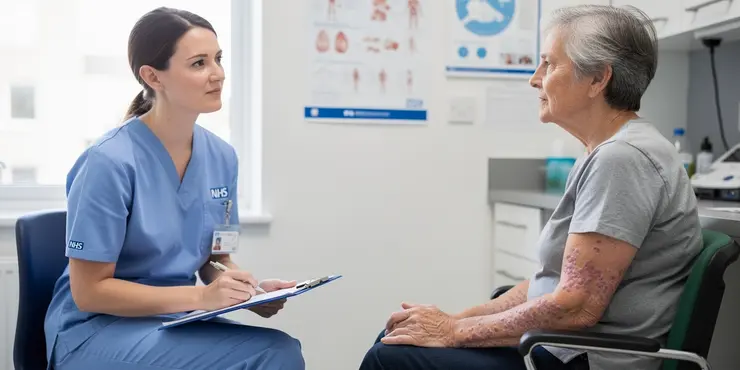
Is there a cure for psoriasis?
Relevance: 33%
-
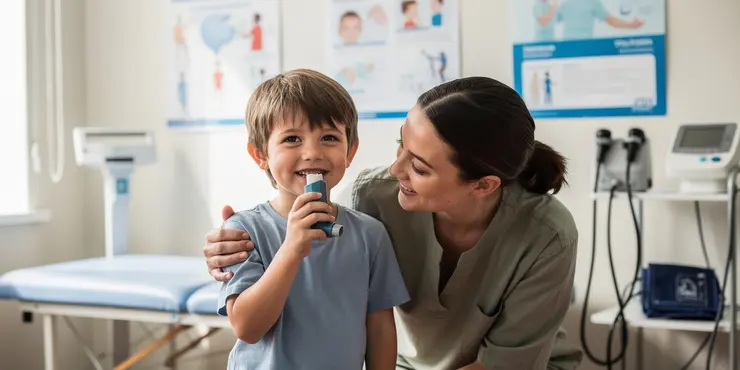
Can asthma be cured?
Relevance: 32%
-

Is there a cure for ADHD?
Relevance: 32%
-
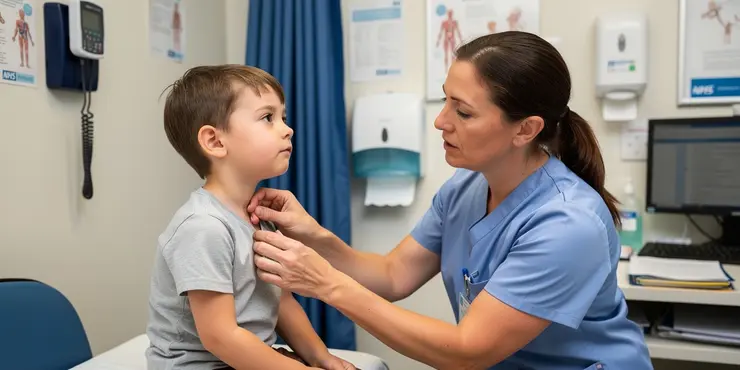
Is there a cure for eczema?
Relevance: 32%
-

Can autism be cured?
Relevance: 32%
-

What is the principle of 'like cures like'?
Relevance: 32%
-
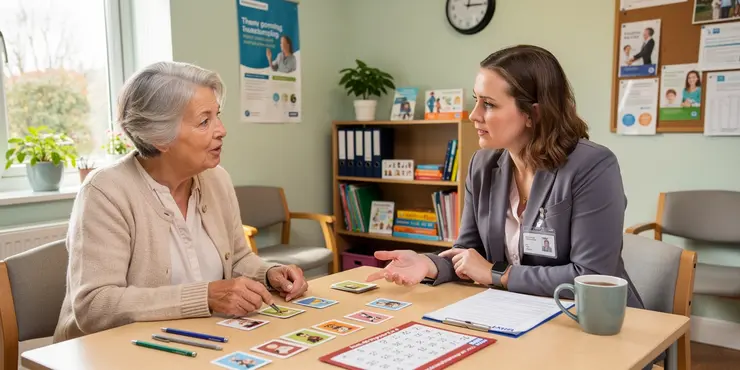
Is there a cure for dementia?
Relevance: 31%
-
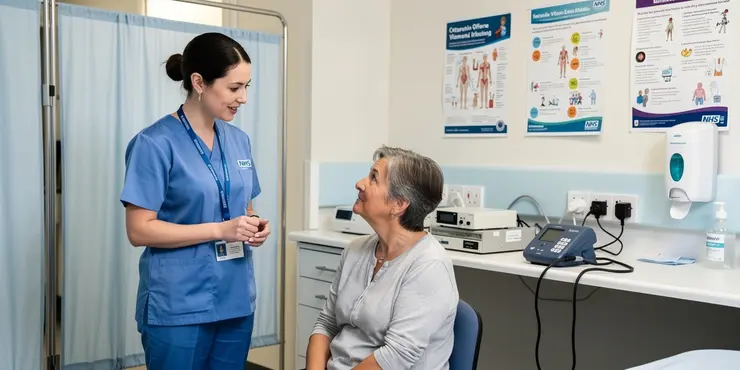
Is Vitamin C effective against colds?
Relevance: 31%
-
Can tinnitus be cured?
Relevance: 31%
-
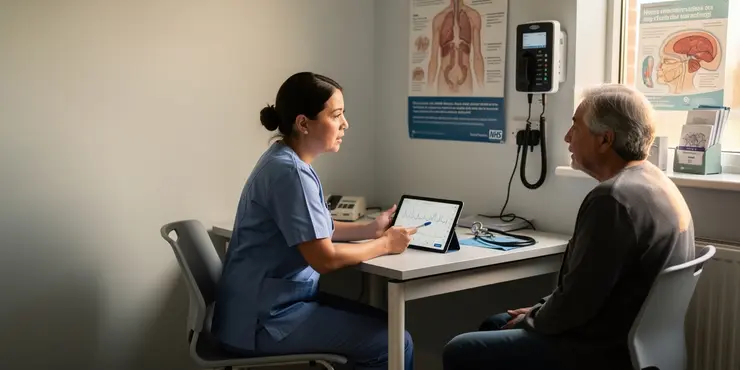
Can sleep apnea be cured?
Relevance: 30%
-
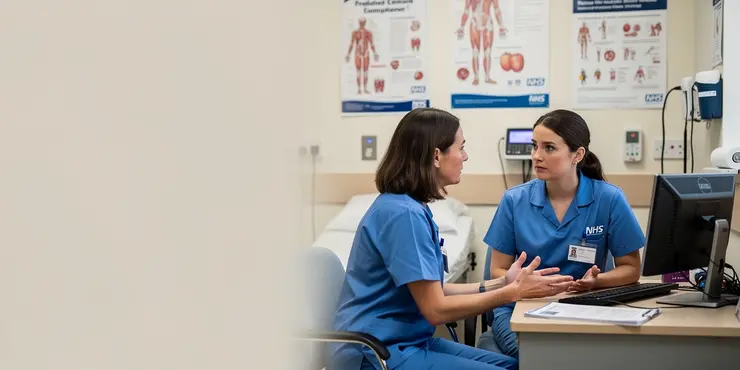
Is it safe to take cold showers during a heatwave?
Relevance: 30%
-

How do I treat my child's cold? (9 - 30 months) | NHS
Relevance: 30%
-
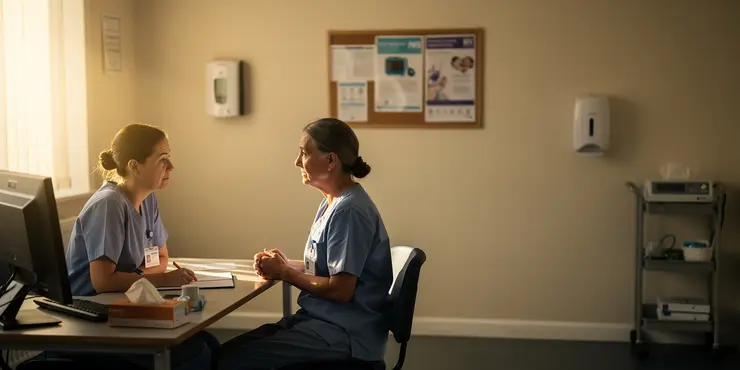
Can Huntington's disease be cured?
Relevance: 30%
Understanding Cold Sores
Cold sores, also known as fever blisters, are small blisters that appear on the lips or around the mouth. They are caused by the herpes simplex virus (HSV), specifically HSV-1. Cold sores are highly contagious and can be easily spread through close personal contact, such as kissing or sharing utensils with someone who has an active outbreak.
Is There a Cure for Cold Sores?
Unfortunately, there is currently no cure for cold sores. Once a person is infected with the herpes simplex virus, it remains in their body for life. The virus stays dormant in the nerve cells and can be reactivated by various triggers such as stress, illness, or sun exposure, leading to recurrent outbreaks of cold sores.
Treatments for Cold Sores
While there is no cure, there are treatments available to manage the symptoms and reduce the frequency of outbreaks. Over-the-counter creams, such as aciclovir or penciclovir, can be applied topically to the affected area to help reduce the duration and severity of an outbreak if used at the first sign of a sore developing.
Antiviral oral medications, such as aciclovir, valaciclovir, or famciclovir, may be prescribed by a doctor for more severe cases or for those who have frequent outbreaks. These medications can help speed up healing and reduce the frequency of future outbreaks when taken regularly.
Prevention and Management
Preventing cold sores entirely can be challenging, especially if you have a weakened immune system or are prone to recurrent outbreaks. However, some steps can be taken to reduce the risk of triggering an outbreak. Avoiding known triggers, such as prolonged exposure to sunlight, stress, or fatigue, can help. Using lip balm with a high SPF can reduce sun-induced outbreaks.
Maintaining a healthy lifestyle, including a balanced diet, regular exercise, and adequate sleep, may help boost the immune system and reduce outbreaks. If you have a cold sore, avoiding direct contact with others, not sharing personal items, and practicing good hygiene can help prevent the spread of the virus.
Consultation with Healthcare Providers
If you experience frequent cold sore outbreaks or if an outbreak does not improve with over-the-counter treatments, it is advisable to consult a healthcare provider. They can offer advice tailored to your specific situation and may recommend a prescription treatment plan to help manage the condition more effectively.
Understanding Cold Sores
Cold sores are small blisters. They can appear on your lips or around your mouth. They are also called fever blisters. A virus called herpes simplex virus (or HSV-1) causes them. Cold sores spread easily. You can catch them if you kiss someone who has them or use the same cup or fork.
Is There a Cure for Cold Sores?
Sadly, there is no cure for cold sores yet. Once you get the virus, it stays in your body forever. The virus can "sleep" inside your body. Things like stress or getting sick can "wake up" the virus. This can cause cold sores to come back.
Treatments for Cold Sores
Even though we can't cure cold sores, we can treat them. There are creams you can buy in the store that help. You put them on the sore to make it heal faster. Some people might need special medicine from a doctor if they get cold sores a lot. These medicines can help if the sores are very bad or happen all the time.
Prevention and Management
It can be hard to stop cold sores from coming. But some things might help. Try to avoid what makes them start, like being out in the sun too long or getting very stressed. Wearing lip balm with sunscreen can help too. Staying healthy by eating good foods, exercising, and having enough sleep might make you stronger against cold sores. If you have a cold sore, avoid touching or kissing others. Don’t share personal items like towels or cups.
Consultation with Healthcare Providers
If you keep getting cold sores and the creams don't help, talk to a doctor. They can give you the best advice for your case and might provide stronger medicine.
Frequently Asked Questions
What are cold sores?
Cold sores are small blisters that typically appear on or around the lips, caused by the herpes simplex virus (HSV).
Is there a cure for cold sores?
There is no cure for the herpes simplex virus that causes cold sores, but treatment can help manage symptoms and speed up healing.
How can I treat cold sores?
Cold sores can be treated with antiviral medications such as acyclovir, valacyclovir, and famciclovir, which can help reduce symptoms and hasten healing.
Can I prevent cold sores from recurring?
While you cannot permanently prevent recurrences, antiviral medications and lifestyle changes such as reducing stress and avoiding triggers may help minimize outbreaks.
What are common triggers for cold sores?
Common triggers include stress, fatigue, illness, exposure to sunlight, and hormonal changes.
Are cold sores contagious?
Yes, cold sores are contagious and can be spread through direct contact with the sores or through saliva.
How long do cold sores usually last?
Cold sores typically last about 7 to 10 days, but this can vary depending on the individual and treatment.
Can cold sores spread to other parts of the body?
Yes, the herpes simplex virus can spread to other areas of the body, but this is relatively rare. Good hygiene practices can help prevent this.
Should I see a doctor for cold sores?
You should see a doctor if you have frequent outbreaks, if sores don't heal within two weeks, or if you experience severe symptoms.
Are there any natural remedies for cold sores?
Some people find relief using natural remedies like lemon balm, lysine supplements, and aloe vera, though their effectiveness is not scientifically proven.
Can cold sores be a sign of another health issue?
Frequent cold sores could indicate an underlying health issue or a weakened immune system, so it's important to consult with a healthcare provider.
How can I reduce discomfort from cold sores?
Applying a cold compress, keeping the site clean, using over-the-counter creams or ointments, and taking pain relievers can help reduce discomfort.
Is there a difference between cold sores and canker sores?
Yes, cold sores are caused by a virus and occur outside the mouth, while canker sores are not viral and occur inside the mouth.
Can children get cold sores?
Yes, children can get cold sores, usually after being exposed to the herpes simplex virus.
What should I avoid during a cold sore outbreak?
Avoid kissing, sharing utensils, touching your face, and close contact with others during an outbreak to reduce the risk of spreading the virus.
Can stress cause cold sores to appear?
Yes, stress is a common trigger for cold sores, as it can weaken the immune system.
Can cold sores appear inside the mouth?
Cold sores typically appear outside the mouth, but the virus can occasionally cause sores on the gums or roof of the mouth in some individuals.
When is a person with a cold sore most contagious?
A person is most contagious when they have visible sores, but the virus can still be spread when there are no symptoms present.
Can I still transmit the virus if I have no visible cold sores?
Yes, the herpes simplex virus can be transmitted even when no sores are visible, a phenomenon known as asymptomatic shedding.
What should I do if I accidentally touch a cold sore?
Wash your hands immediately to prevent spreading the virus to other parts of your body or to other people.
What are cold sores?
Cold sores are little blisters that can appear on your lips or around your mouth. They are caused by a virus.
Here is how you can tell if you have a cold sore:
- You might see small blisters.
- Your lip might tingle, burn, or itch before the sore appears.
Here are some things you can do if you have a cold sore:
- Use a cold sore cream from the pharmacy.
- Try not to touch the sore. If you do, wash your hands.
You can ask an adult for help if you're not sure what to do.
Cold sores are little blisters that show up on or near your lips. They are caused by a virus called herpes simplex virus (HSV).
Can cold sores be fixed?
There is no way to make the cold sore virus go away forever. But, you can use treatment to feel better and help the cold sores heal faster.
How can I make cold sores better?
Cold sores are small blisters that can hurt. Here is how you can help them heal:
- Use a special cream from the pharmacy. Ask an adult to help you.
- Don't touch the cold sore. It can spread to other parts of your body.
- Wash your hands often.
- Put a soft cloth with cold water on the sore to feel better.
- Tell a grown-up if it doesn't get better.
Some tools that might help you are:
- Pictures of what you need to do.
- Videos that show you how to use the cream.
Cold sores are sore spots on your lip or mouth. You can take special medicine to help them get better faster. The medicine has names like acyclovir, valacyclovir, and famciclovir. These can make you feel better and help the sore heal quicker.
You can also use tools to help you read better, like:
- Audiobook readers to listen instead of reading.
- Apps that read out loud to you.
How can I stop cold sores from coming back?
You can't stop outbreaks forever. But, medicine and healthy habits can help. Try taking antiviral medicine. Also, staying calm and knowing what causes outbreaks can make them happen less.
What makes cold sores happen?
Some things can make problems start, like feeling stressed, being really tired, getting sick, spending too much time in the sun, and changes in your body's hormones.
You can use tools to help, like taking breaks, resting, wearing a sun hat, and talking to a grown-up if you feel different.
Can you catch cold sores from someone?
Yes, cold sores can spread to other people. You can catch them by touching the sore or from spit.
Here are some helpful tips:
- Try not to touch the cold sore.
- Wash your hands often.
- Avoid kissing or sharing things, like cups or towels, with others.
How long do cold sores last?
Cold sores are like little sores on your mouth. They usually last for about 1 to 2 weeks.
To help with cold sores, you can:
- Use special cold sore creams.
- Try ice to make it feel better.
- Ask a grown-up for medicine from a doctor if it's bad.
Remember to wash your hands often to stop it from spreading!
Cold sores usually go away in 7 to 10 days, but this can change for each person. Medicine can help too.
Can cold sores move to other parts of the body?
Yes, the herpes virus can move to other parts of the body. But this does not happen very often. Keeping clean can help stop it from spreading.
Do I need to visit a doctor for cold sores?
Cold sores are small, painful spots on your lips or around your mouth. They are caused by a virus.
Here’s when you might need to see a doctor:
- If the cold sore is very painful.
- If it does not get better in 2 weeks.
- If you get cold sores often.
- If the sore is near your eyes.
Some things that might help:
- Use a cold sore cream from the pharmacy.
- Put a cold, damp cloth on the sore.
- Avoid touching the sore, so it doesn't spread.
If you find reading hard, here are some things that might help:
- Ask a friend or family member to read it with you.
- Use audiobooks or apps that read text out loud.
- Highlight words you don’t understand and ask for help.
Go to the doctor if you get sores a lot, if they do not get better in two weeks, or if you feel very bad.
Can you use things from nature to help cold sores?
Some people feel better by using natural things like lemon balm, lysine tablets, and aloe vera. But we don't know for sure if they work.
Do cold sores mean you might be sick with something else?
If you get cold sores a lot, it might mean there is a bigger health problem or your body's defenses are weak. It's a good idea to talk to a doctor.
How can I make cold sores hurt less?
If you have a cold sore, it might hurt or feel itchy. Here are some simple tips to help you feel better:
- Keep it clean: Wash the sore gently with water and mild soap to keep it clean.
- Use a cold cloth: Place a cool, wet cloth on the sore for a few minutes. It can help reduce pain and swelling.
- Don’t touch: Try not to touch or pick at the sore as it can make it worse.
- Lip balm: Use a lip balm to keep your lips from getting too dry.
- Avoid spicy food: Don't eat spicy or salty foods, as they can make the sore hurt more.
You can also ask an adult to help you. They can talk to a drugstore pharmacist or doctor to recommend a cream or medicine. Remember, cold sores usually go away on their own after a little while.
When you have a sore spot, you can do a few things to feel better:
- Put something cold on it, like a cold cloth.
- Keep it clean.
- Use special creams or ointments you can buy at the store.
- Take medicine to make the pain go away.
Are cold sores and canker sores different?
Yes, they are different.
- Cold sores usually form around the lips. They are caused by a virus.
- Canker sores happen inside the mouth. They are not caused by a virus.
To learn more and get extra help, you can:
- Use picture books.
- Watch simple videos about cold sores and canker sores.
- Ask a trusted adult for help.
Yes, cold sores are caused by a virus. They happen on your lips or outside your mouth. Canker sores are different. They are not caused by a virus and happen inside your mouth.
Can children have cold sores?
Yes, children can get cold sores. Cold sores are small blisters that can show up on the lips or around the mouth.
Here is how to help:
- Tell children not to touch the sore.
- Make sure they wash their hands a lot.
- Use a clean cloth or tissue to clean the sore.
- If it hurts, tell an adult. They might give you special cream.
Remember, cold sores can spread, so it's important to keep them clean and not touch them.
Yes, kids can get cold sores. This happens if they catch a virus called herpes simplex.
What should I stay away from when I have a cold sore?
A cold sore is a small blister on your lip or around your mouth. It can be itchy or sore.
Here are some things to stay away from when you have a cold sore:
- Do not touch the cold sore. It can spread germs.
- Stay away from kissing. You could spread the cold sore to others.
- Do not share things like cups, towels, or lipstick. These can carry germs.
- Stay away from foods that might hurt your mouth, like spicy or acidic foods (like oranges).
Try these helpful tips:
- Put ice or a cold cloth on the sore to help with pain.
- Use lip balm to keep your lips soft.
- Try to rest so your body can heal.
- Wash your hands often to stay clean.
These ideas can help you feel better and keep others safe.
Don't kiss, share forks or spoons, touch your face, or get too close to people when there is a virus outbreak. This helps stop the virus from spreading.
Does being worried make cold sores show up?
Yes, stress can cause cold sores. Stress makes your body weaker, so it can't fight germs as well.
Can cold sores show up inside the mouth?
Cold sores are usually seen outside the mouth. But sometimes, they can also be on the gums or the roof of the mouth for some people.
If reading is difficult, you can try:
- Using a tool that reads texts out loud.
- Highlighting or underlining important words.
When can you spread cold sores the most?
A person can spread the virus easily when they have sores that you can see. But even if you can't see any sores, they can still pass on the virus.
Can I give the virus to someone if I don't have any cold sores?
Yes, you can still pass the virus to others even if you don't see any cold sores on your mouth.
You can use pictures or apps to help understand and remember this information.
Yes, you can still get the herpes virus even if you can't see any sores. This is called "asymptomatic shedding."
What if I touch a cold sore by mistake?
If you touch a cold sore by accident, here is what you can do:
- Wash your hands with soap and water right away.
- Try not to touch your face or other people.
- Use a tissue to cover the cold sore.
- If you have any questions, ask an adult for help.
Wash your hands right away. This helps stop the virus from spreading to other parts of your body or to other people.
Useful Links
This website offers general information and is not a substitute for professional advice.
Always seek guidance from qualified professionals.
If you have any medical concerns or need urgent help, contact a healthcare professional or emergency services immediately.
Some of this content was generated with AI assistance. We’ve done our best to keep it accurate, helpful, and human-friendly.
- Ergsy carfully checks the information in the videos we provide here.
- Videos shown by Youtube after a video has completed, have NOT been reviewed by ERGSY.
- To view, click the arrow in centre of video.
- Most of the videos you find here will have subtitles and/or closed captions available.
- You may need to turn these on, and choose your preferred language.
- Go to the video you'd like to watch.
- If closed captions (CC) are available, settings will be visible on the bottom right of the video player.
- To turn on Captions, click settings .
- To turn off Captions, click settings again.
More Items From Ergsy search
-

Is there a cure for cold sores?
Relevance: 100%
-

What are Cold Sores?
Relevance: 80%
-

Are cold sores contagious?
Relevance: 79%
-

What causes cold sores?
Relevance: 73%
-

How long do cold sores last?
Relevance: 70%
-

What are the symptoms of a cold sore?
Relevance: 69%
-

How are cold sores transmitted?
Relevance: 69%
-

Is there a way to cure a cold quickly?
Relevance: 68%
-

What triggers a cold sore outbreak?
Relevance: 66%
-

How can I prevent cold sores?
Relevance: 65%
-

Honey 'as good as antiviral creams' for cold sores | NHS Behind the Headlines
Relevance: 57%
-

What is the best way to treat a sore throat from a cold?
Relevance: 56%
-

How to Treat a Common Cold
Relevance: 49%
-

Causes of a sore throat
Relevance: 47%
-

Treating a sore throat
Relevance: 47%
-

How to treat a cold | NHS
Relevance: 45%
-

What are the common symptoms of a cold?
Relevance: 43%
-

Should I see a doctor for a cold?
Relevance: 42%
-

How can I treat a cold at home?
Relevance: 42%
-

Sore throat: what should I do?
Relevance: 42%
-

How long does a common cold typically last?
Relevance: 40%
-

Is it safe to exercise with a cold?
Relevance: 39%
-

Can I take antibiotics for a cold?
Relevance: 38%
-

Can cold weather cause a cold?
Relevance: 37%
-

What should you do if you have a cough or cold?
Relevance: 36%
-

Plantar Fascia Cold Therapy
Relevance: 35%
-

Can I use a humidifier to help with my cold symptoms?
Relevance: 35%
-

Is there a cure for psoriasis?
Relevance: 33%
-

Can asthma be cured?
Relevance: 32%
-

Is there a cure for ADHD?
Relevance: 32%
-

Is there a cure for eczema?
Relevance: 32%
-

Can autism be cured?
Relevance: 32%
-

What is the principle of 'like cures like'?
Relevance: 32%
-

Is there a cure for dementia?
Relevance: 31%
-

Is Vitamin C effective against colds?
Relevance: 31%
-
Can tinnitus be cured?
Relevance: 31%
-

Can sleep apnea be cured?
Relevance: 30%
-

Is it safe to take cold showers during a heatwave?
Relevance: 30%
-

How do I treat my child's cold? (9 - 30 months) | NHS
Relevance: 30%
-

Can Huntington's disease be cured?
Relevance: 30%


